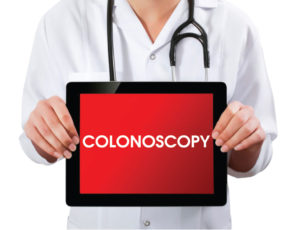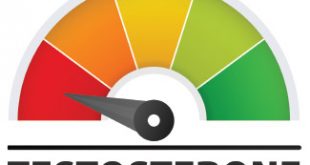The Screening Age Has Been Lowered for Those At Risk
 Getting a colonoscopy was something you usually didn’t have to worry about until you turned 50, but the American Cancer Society has altered their recommendation for a first-time colon cancer screening to age 45 for those at risk of cancer.
Getting a colonoscopy was something you usually didn’t have to worry about until you turned 50, but the American Cancer Society has altered their recommendation for a first-time colon cancer screening to age 45 for those at risk of cancer.
The change was directly tied to the rising number of younger adults being diagnosed with colorectal cancers – including many with no family history of the disease. Colon cancer is the third most common form of cancer in the United States.
“There is the potential for false perceptions regarding the changing data on colon cancer,” said Shiva Seetahal, M.D., a bariatric and general surgeon with Heart of Florida Physician Group. “While mortality rates from colon cancer have been declining over the past 30 years, the number of new diagnoses is actually increasing. This is both good news and bad news – we are doing a better job of screening for and removing polyps before they become cancerous, while lifestyle and diet choices are driving up the risk and incidence of these cancers in general.”
While it is one of the most common forms of cancer, colon cancer is also highly preventable and treatable. Healthy diet and lifestyle choices, combined with proactive screening and prompt removal of any polyps, can dramatically reduce your risk of contracting this disease. Also, never ignore changes of any kind in your bowel habits – be prepared to share details with your physician, including frequency, consistency and any type of discomfort or dysfunction.
The new guidance includes very specific precautions for those at increased risk of colon cancer. For these patients, the physician may advise initial screening before age 45, being screened more often, and/or using specific screening methods to ensure polyps are found and removed early, before they can become cancerous.
These risk factors include:
A personal or family history of colorectal cancer, or of certain types of polyps
A personal history of ulcerative colitis or Crohn’s disease
A history of radiation in the abdomen or pelvis, in treatment of previous cancer(s)
A genetic and hereditary colorectal cancer syndrome, such as familial adenomatous polyposis (FAP) or Lynch syndrome
A SIMPLE PROCEDURE
A colonoscopy is performed using a long, thin, flexible tube, which is inserted through the rectum into the lower digestive tract, while the patient is sedated or asleep. The tube is equipped with a light and a tiny camera that transmits images of the patient’s intestinal lining to a computer screen located at the bedside. This enhanced view allows the doctor to see inflamed tissue and any abnormal growths.
“The procedure is generally painless as the patient is given sedatives before the procedure,’’ Dr. Seetahal said.
If polyps (growths) are found during the exam, they are quickly and painlessly removed at that time, and later tested in a laboratory for signs of cancer. Polyps are common in adults, and usually harmless. However, most colorectal cancer begins as a polyp, so removing polyps early is an effective prevention method. Your doctor can also take samples from abnormal-looking tissues – a biopsy – during the colonoscopy, so that any suspicious areas can be examined for signs of disease and treated, if necessary.
“The actual procedure does not take that long, generally about 15 minutes or so, depending on if any polyps are found,’’ Dr. Seetahal said. “Once the procedure is completed, the patient goes to recovery and then will be released to go home. It is an outpatient procedure.ˮ
Because of the sedation, a patient will need to have someone with them to take them home, Dr. Seetahal said.
Your doctor can provide guidance about the right time to begin and the frequency of testing, but industry guidelines suggest that a repeat screening be conducted every 10 years for adults with normal risk.
RISK FACTORS
Your risk level for colon cancer varies according to your age, gender and ethnic background, as well as your overall health and lifestyle. Factors that affect your risk level include:
Advancing age (over age 45)
Male gender
African American ethnic status
A family or personal history of polyps (growths inside the rectum or colon), or colorectal cancer
A high-fat diet
Certain digestive diseases, diabetes, Crohn’s disease, ulcerative colitis
Depending on your age, a colonoscopy screening may be a covered “wellness” test under your insurance plan – and most plans cover a colonoscopy completely as a follow-up test or diagnostic tool. Check with your insurance carrier to check your coverage for a colonoscopy.
Your primary care provider or gastroenterologist can write you an order for a colonoscopy. If you need help finding a primary care provider or gastroenterologist, please call 844-634-DOCS (3627) or visit our web page at HeartOfFloridaPhysicianGroup.com.
Check Also
I Have a Wait Problem
You’re reading a health and wellness magazine and you’re thinking: that guy can’t spell. But …
 Central Florida Health and Wellness Magazine Health and Wellness Articles of the Villages
Central Florida Health and Wellness Magazine Health and Wellness Articles of the Villages



